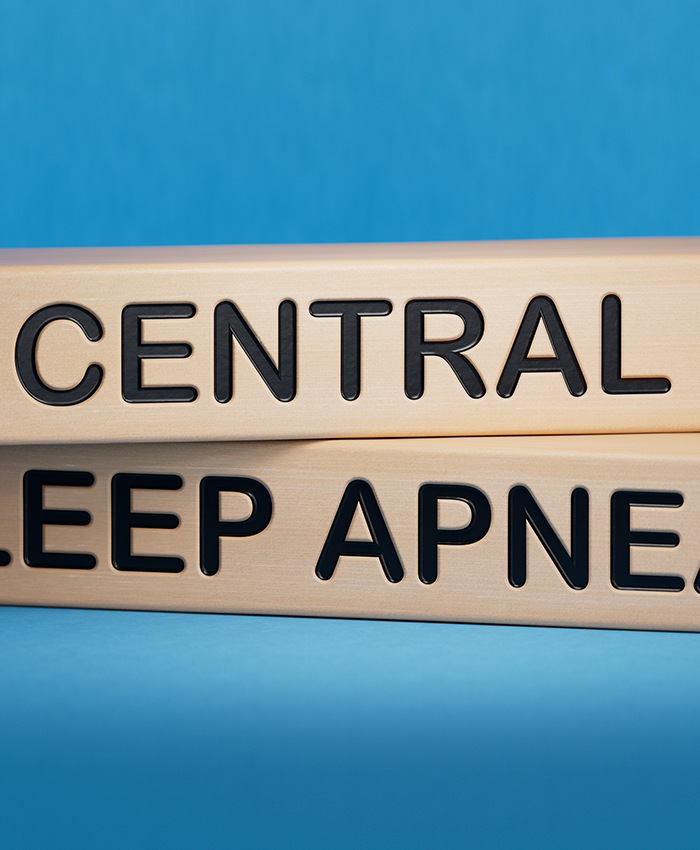Central Sleep Apnea Denver
The Less Common Type of Sleep Apnea

When people say that sleep apnea is common, they are talking about obstructive sleep apnea (OSA). But did you know there is a less common manifestation of this disorder? Known as central sleep apnea (CSA), this condition can be just as destructive as OSA and even more challenging to treat. What should you know about it? Our Denver team provides some important information on this page.
What Is Central Sleep Apnea?

Any type of sleep apnea involves repeated breathing disruptions throughout the night. However, the cause of these episodes is different between OSA and CSA. In OSA, tissues in the throat block the free flow of oxygen. In CSA, the pauses in breathing occur because the brain fails to send proper breathing signals to the rest of the body. These episodes may occur in a cyclical pattern or happen sporadically.
According to some estimates, CSA accounts for around 5 – 10% of all sleep apnea cases. This explains why CSA does not get nearly as much attention as its more prevalent counterpart.
Causes of Central Sleep Apnea

CSA may have several different causes:
- Cheyne-Stokes breathing is a type of irregular breathing pattern that can lead to central sleep apnea.
- Drugs and medications that affect the brain or respiratory system, such as opioids, can cause central sleep apnea.
- Sleeping at a high altitude can sometimes trigger sleep apnea due to reduced oxygen levels.
- Underlying medical conditions, such as heart failure or stroke, may contribute to the development of poor-quality nighttime breathing.
- Idiopathic sleep apnea occurs when there is no identifiable cause for CSA.
Possible Complications of Central Sleep Apnea

Just like obstructive sleep apnea, central sleep apnea can have devastating consequences for your health and quality of life if it remains untreated. For example, dealing with low oxygen levels night after night can place a great deal of stress on your cardiovascular system, increasing your risk of heart problems. People with sleep apnea are more likely to experience high blood pressure, heart attack, stroke, irregular heart rhythm, and more.
CSA can also make you feel exhausted on a daily basis, which can affect your emotions, your productivity, and your ability to drive safely.
When Should You See a Doctor?

Whenever you feel that you are not sleeping well, it would be wise to visit a doctor for advice. Here are some indications that you might have CSA:
- You often wake up feeling short of breath.
- Your partner has observed that you sometimes stop breathing during the night.
- You often feel exhausted despite sleeping for 7 – 8 hours.
- You have risk factors for CSA, such as kidney failure, the use of opioids or benzodiazepines, being of the male gender, or being over 65 years of age.
A qualified doctor can assess your situation and recommend your next steps. Hopefully, you will find a treatment plan that works for you!